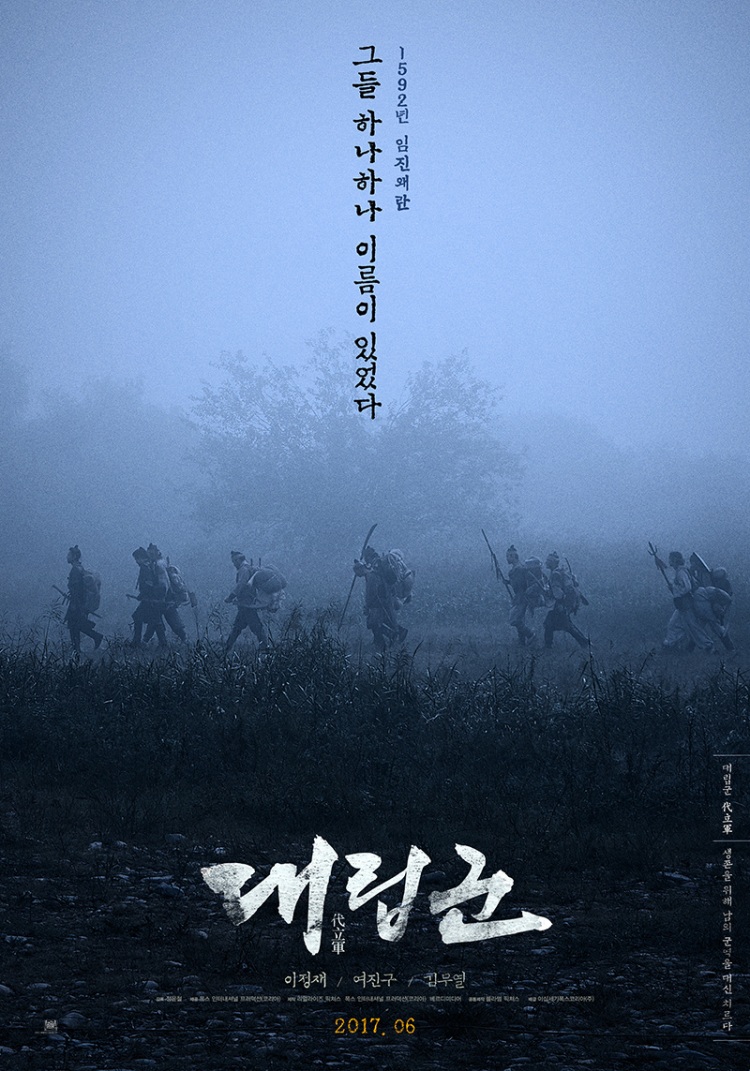 Some might say a king is the slave of his people, but then again he is a very well kept slave even if he is no more free than a serf at the mercy of a feudal lord. Warriors of the Dawn (대립군, Daeribgoon), set in 1592 during the short-lived Japanese invasion, takes this idea to its heart in playing up the inherent similarities between the oppressed poor who are forced to impersonate the sons of wealthy men too grand for the battlefield, and the Crown Prince unwillingly forced to impersonate the King who has abandoned his people and run away to China to save his own skin. Though the Prince is young and afraid, with the help of his resentful mercenary brethren he begins to find the majesty buried inside himself all along but crucially never forgets what is like to feel oppressed so that he might rule nobly and fairly, unlike his more selfish father.
Some might say a king is the slave of his people, but then again he is a very well kept slave even if he is no more free than a serf at the mercy of a feudal lord. Warriors of the Dawn (대립군, Daeribgoon), set in 1592 during the short-lived Japanese invasion, takes this idea to its heart in playing up the inherent similarities between the oppressed poor who are forced to impersonate the sons of wealthy men too grand for the battlefield, and the Crown Prince unwillingly forced to impersonate the King who has abandoned his people and run away to China to save his own skin. Though the Prince is young and afraid, with the help of his resentful mercenary brethren he begins to find the majesty buried inside himself all along but crucially never forgets what is like to feel oppressed so that he might rule nobly and fairly, unlike his more selfish father.
The tale begins with Tow (Lee Jung-Jae) – a “Proxy Soldier”, one of many from the Northern borderlands where the living is hard. Sons of feudal lords need not risk their lives on the battlefields while there is money to spend and so they buy the service of young men from poor families to stand in for them. The men take the name of the man they’re supposed to be but if they die, their family must send a replacement to serve out the remaining time or pay back the money that was given to them. At this point Tow’s main problem is the Jurchen rebels who’ve decided to live life their own way outside of the system of class hierarchy currently in place in feudal Korea.
The Japanese, however, are pressing on and making gains towards the capital. The King decides to flee, hoping to reach China where the Ming Emperor may be minded to help them. He cannot, however, simply abandon ship and decides to divide the court with the left behind contingent headed by his son, Crown Prince Gwang-hae (Yeo Jin-goo). Gwang-hae is young and inexperienced. Not having had a good relationship with his father, he’s mystified as to why he’s suddenly been given this “honour” but together with a selection of advisors he’s sent on a journey to found a second court at Gonggye, picking up scattered forces along the way. This brings him into contact with Tow and his contingent who become his main defenders.
Having lived a life inside the palace walls, Gwang-hae knows nothing of war or fighting and has brought a selection of books with him hoping to learn on the job. His ineptitude is likened to that of a young recruit to the band of Proxy Soldiers who has been forced to join on the death of his father but has no training and is too squeamish to kill, requiring Tow to come to his rescue as he later does for Gwang-hae. Tow is a born soldier yet reluctant, fully aware that he no longer exists and should he die another man with no name will step into his place with nary a pause. He continues to fight because he has no choice but he also feels an intense bond of brotherhood to his fellow men, something which later extends to Gwang-hae once his latent nobility begins to emerge.
Gwang-hae’s central conflict is between his advisors who council him towards austerity, and his deeper feelings which encourage him to sympathise with the ordinary people he meets along the way whose lives are being ruined thanks to the government’s failure to protect them. As it turns out, Gwang-hae is also low-born, in a sense, and therefore has inherited something of the common touch which separates him from the aloofness of his father. Though he is constantly told to make the “rational” choice he refuses – ordering troops to stop when they attempt to extort food from starving peasants, insisting on evacuating a village to safer ground, and then finally becoming a warrior himself in order to defend his people when no one else would.
Gwang-hae is, perhaps, a warrior for a new dawn and a flag that men like Tow can follow in the quest for a better world in which each man can keep his own name and fight for his own cause rather than that laid down for them by men with money or power. Despite the potential for a more urgent argument, Jeong mostly falls back on standard period aesthetics with overly familiar narrative beats heavily signposted by a subpar script. Warriors of the Dawn cannot decide whether it’s a film about catching the conscience of a king or the noble sacrifice of would be revolutionaries, failing to lend the essential weight to its duel arcs of rebirth and coming of age all of which makes for a long, hard march towards an inevitable conclusion.
Screened at the London Korean Film Festival 2017.
International trilogy (English subtitles)
